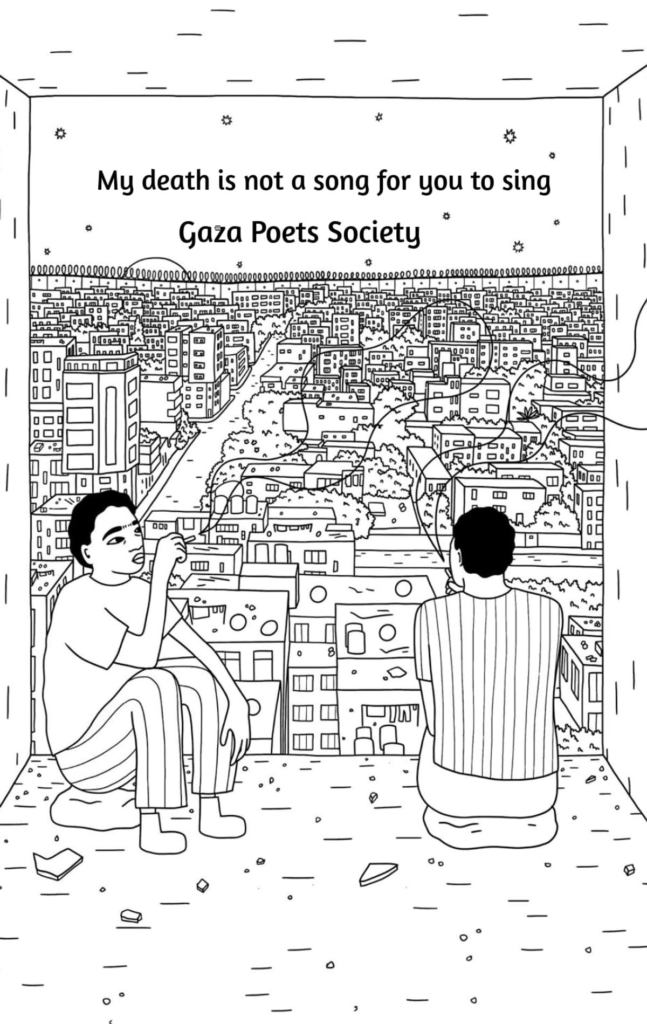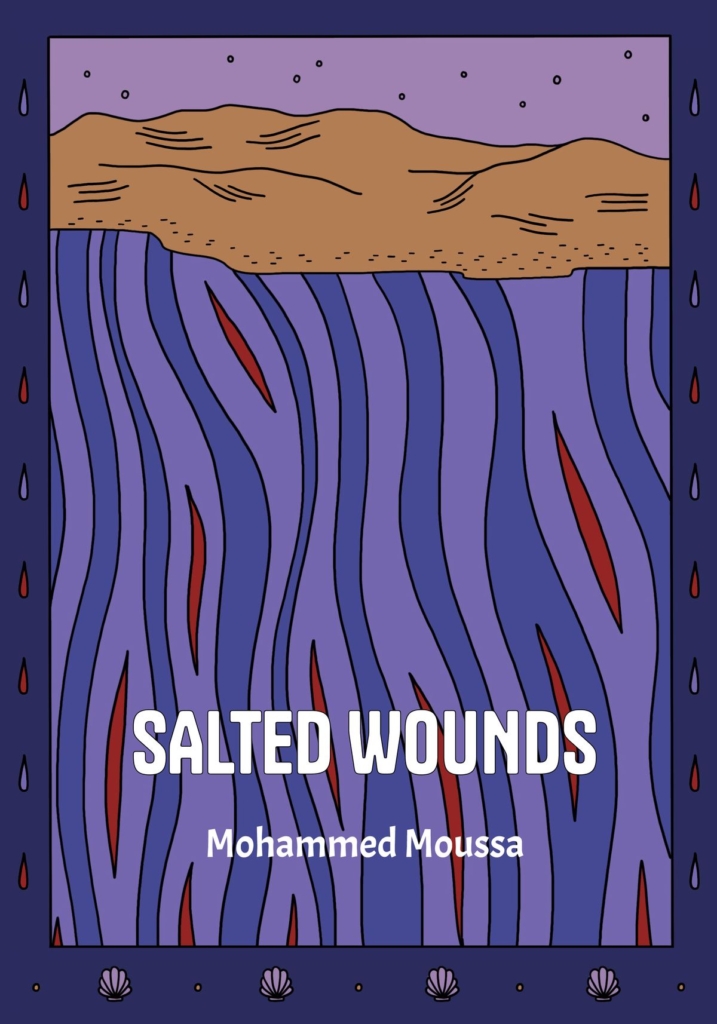A statement on writing poetry during a genocide
Mohammed Moussa is a Palestinian freelance journalist, podcast host, and the founder of the Gaza Poets Society. The group is the premier spoken word community in Gaza. They compile anthologies and zines, sponsor young poets, and establish connections between local and international poets. This is the first of a series of poems by Moussa (I’m not waiting for the war to end) ahead of the publication of a collection of his works later this summer by Leamington Books. Below is the opportunity to buy some of the anthologies available from the group and support their work.

Writing and sharing poetry during wartime brings to mind the act of writing a poem as one approaches their end, similar to writing at a funeral or walking barefoot through a chaotic market filled with death. This is how I have always felt as a poet from Jabalia camp, and my fellow poets in Gaza share this sentiment. We often write our poems as if they are our last words, fearing we might leave this world without expressing who we are, our simple dreams, and the significance of our loved ones.
Sharing poetry from each poet is a delicate moment, as we worry we may not hear from them again. After a year of relentless attacks on our city, it feels like the poems we create could be our final messages. Some write on scraps of paper or in notebooks while being displaced, moving from one place to another, often forgetting what we penned in our homes before fleeing.
Our poetry can be lost, just like us, at any moment in Gaza. I have found the opportunity to write when I feel most overwhelmed by life and war, as if the words are stuck in my throat, needing to be expressed. The sounds of warplanes echo, prompting thoughts of haunting phrases that linger, or the voices that greet us upon returning home at dusk, seeking comfort after losing everything. In times of genocide, poetry becomes a vital way to express grief, especially when the heart is burdened by pain and confusion, or when looking into the empty eyes of loved ones, searching for words that become poetry.
My journey of writing and sharing poetry during the genocide in Gaza has been deeply impactful, filled with loss and sorrow, as I navigate feelings of dislocation. While I write, I face the darkness surrounding my thoughts and also receive poems from fellow poets in our community, which I edit and translate. This shared sorrow transcends words, revealing a profound pain that language cannot fully express.
Our grief feels boundless, requiring a vast expanse to contain it, as myriad streams of sadness course through us, hindering the articulation of our feelings. Poetry becomes a space where we attempt to convey the struggles we face, particularly for myself and the poets in my community. Following our losses, it felt as though we had lost our voices, so poetry became our voice. At times, I feel anger toward language and myself, but I persist in writing, and the poets in our community do likewise. They write despite displacement, hunger, loss, death, and fear, knowing this may be the end.
I’m not waiting for the war to end
*
I’m not waiting for the war to end,

This is the cover of Mohammed Moussa’s poetry book, ‘Salted Wounds’, created by the artist Aude Nasr. Go here to buy it and support their work.

